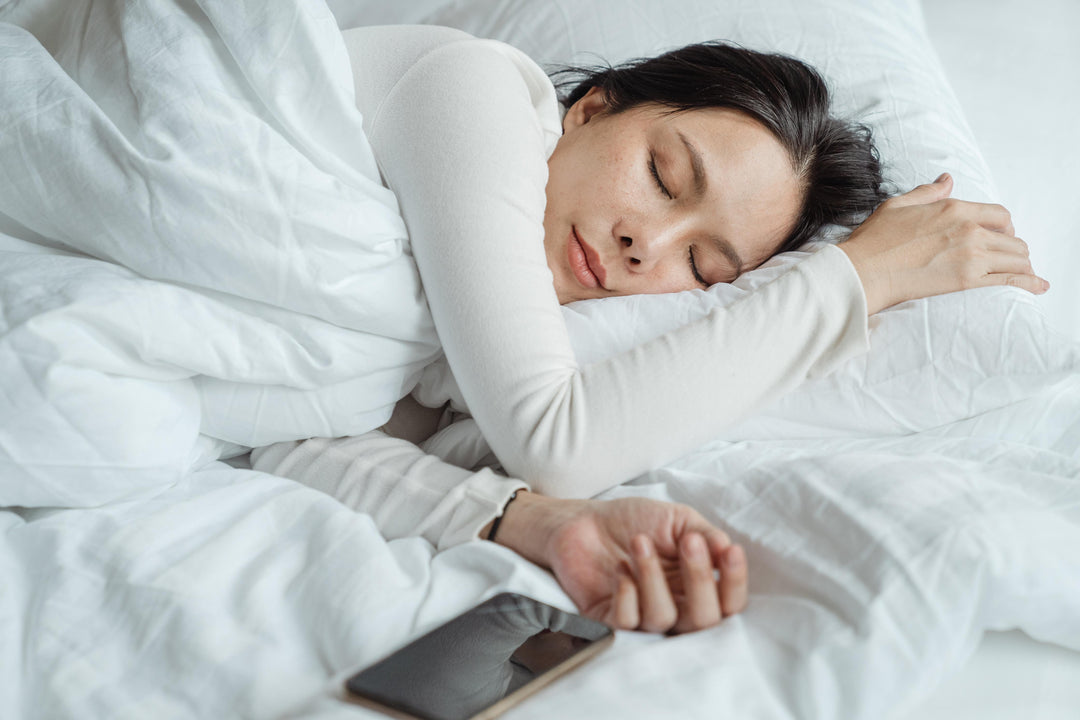Periods that go on forever – Tips for you who experience a heavy flow

Let’s be honest, even though it is a sign that your body works as it should, menstruation is not always all that fun.
There are certain things that can make your period tougher, such as bleeding a lot and constantly having to change pads and tampons. Or if it feels like your period goes on forever, maybe even for several weeks. Abnormally heavy menstrual bleedings or prolonged bleedings that lasts for more than 7 days are called menorrhagia. If your everyday life is affected because you have such heavy menstrual bleedings, you should see a doctor. There are good treatments to consider.
Signs and symptoms of menorrhagia
- Heavy menstrual bleedings (more than 7 days)
- You bleed so much that your menstrual protection is not enough
- You need to change menstrual protection, after you just changed
- You need to change your menstrual protection at night
We are all different, and we all have different flows during our periods. There is no such thing as a “normal” period. So, if you experience heavy flows, it doesn’t mean that there is anything wrong. However, it can be really annoying and troublesome, to have to change your protection too often or several times at night, or even use double protections so that you are 100% sure that you will not bleed through. In this case, period cups and period underwear for a heavy flow might be the solution for you. Heavy periods can also give you symptoms such as fatigue or tiredness due to the blood loss and you can become anaemic. Luckily there are good treatments to consider!
Tips for heavy periods
At the pharmacy, there are over-the-counter pharmaceuticals that can help you with a heavy period. There are anti-bleeding agents that reduce the menstrual flow by up to 40%. You can notice the effect already after 1-2 hours. The pharmaceutical doesn’t affect your body's hormones, bleeding days, or ovulation. Ask the pharmacist and they will help you.
Another common treatment is hormone treatment (contraceptives), like birth control pills or IUD. They will most likely give you a more regular menstrual cycle with a light flow, less period pain, and reduced PMS. It also gives a protection against pregnancy. Talk to your midwife or gynaecologist about your issues and they can help you!
Why do I get heavy periods?
There are various reasons for heavy periods or a sudden increase in menstrual flow. The copper IUD is a contraceptive that, especially at the beginning, gives heavier periods. In comparison to a hormonal IUD, which for many women reduces the flow.
There are certain pharmaceuticals that can increase the bleeding, such as antidepressants or blood thinners. Low metabolism can also cause heavier periods. Another much rarer cause of increased periods is cervical cancer - but this is uncommon in women under the age of 45.
Myomas can also cause heavy periods. Myomas are muscle knots in the uterus. Just over one in ten women has problems with myomas. It is harmless - but can be irritating during your period.
Prolonged menstrual bleeding
A menstrual bleeding will most commonly last for 3-7 days. When the period goes on for 7 days or longer, it is called a prolonged menstrual bleeding. The prolonged bleeding can happen due to various causes.
For example, it could be that you have just started or stopped using contraception. It can cause a change in the hormonal balance and the bleeding can act differently - either your period can become less frequent, irregular, or prolonged. It is harmless but can be bothersome.
If you are struggling with prolonged bleedings that doesn't seem to stop, and that affects your everyday life, you should always seek care – there is help to get. Contact a midwife or a gynaecologist if you experience prolonged bleedings.




 EUR
EUR



Leave a comment